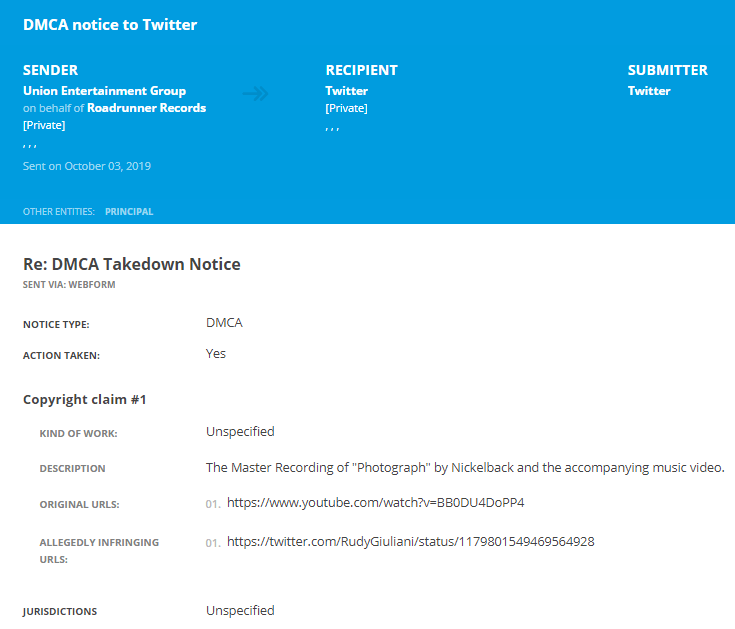
There was uproar in the media this past weekend after a violent video meme was reportedly shown at a pro-Trump conference.
The video, a doctored version of the famous church scene from the movie Kingsman, depicts Trump killing his critics, from both the media and politics.
The video was made by TheGeekzTeam, an entity that creates content for a website run by Carpe Donktum, a prolific pro-Trump supporter and meme-maker. During the fallout on Monday, Carpe Donktum’s Twitter account was suspended, an event which led various media outlets to connect the events of the weekend with the suspension.
A Twitter spokesperson effectively confirmed that the suspension was DMCA related, noting that it responds to “valid copyright complaints sent us by a copyright owner or their authorized representatives.”
Twitter made no mention of which content had caused the suspension but the actual DMCA notice obtained by TorrentFreak confirms it had nothing to do with the ‘Kingsman’ meme published over the weekend.
The DMCA notice, served not only against Carpe Donktum’s Twitter account but also around two dozen others, was actually filed by Universal Music Group. The offending Twitter URL is highlighted below.
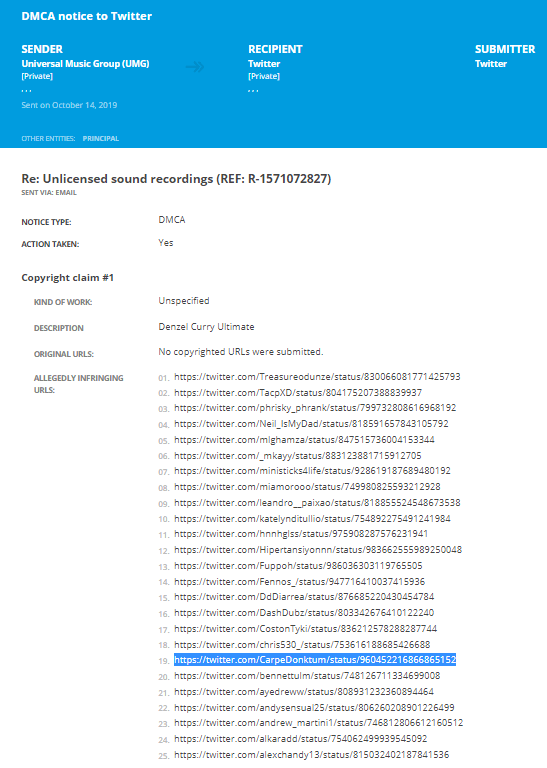
The Tweet in question dates back to February 5, 2018, and remains online, along with the text “In case you missed the T-Mobile Superbowl Commercial. Here it is!” However, the embedded video has been removed, indicating that this was the source of the DMCA complaint.
Comparing uploads on Carpe Donktum’s YouTube account on the very same day we find a video entitled “T-Mobile Superbowl Commercial Fixed“, which is a doctored version of T-Mobile’s official Superbowl commercial.
It’s pretty clear why Carpe Donktum’s video was taken down. While it contains other copyrighted music throughout not contained in the original video (a lullaby rendition of Nirvana’s ‘All Apologies’ according to Shazam), it’s the last 14 seconds of the 80-second video causing the problems.
With Trump wearing a ‘Thug Life’ hat, obligatory sunglasses and sporting a huge joint in his mouth, the track ‘Ultimate’ by Denzel Curry booms from the video. This isn’t what Universal Music wanted and judging by comments made by Curry in 2017, it probably isn’t what he wanted either.

“I felt like I was part of the problem honestly. Being disillusioned and thinking, ‘nah, that’s not gonna happen, this nigga ain’t gonna be president.’ Then this nigga became president. So what the fuck just happened? I don’t get all the choices I want, but I definitely didn’t want this nigga to be my president,” Curry said.
One copyright complaint isn’t usually enough for Twitter to suspend an account but Carpe Donktum now has at least three against his. In addition to the notice sent Monday, two others are on record, one sent in April and another in June. Only the one sent by Universal Music has a listed sender, the other two have their details redacted.
Carpe Donktum’s Twitter account has now been restored but for how long remains open to question and probably dictated by future conduct.
Source: TF, for the latest info on copyright, file-sharing, torrent sites and more. We also have VPN reviews, discounts, offers and coupons.




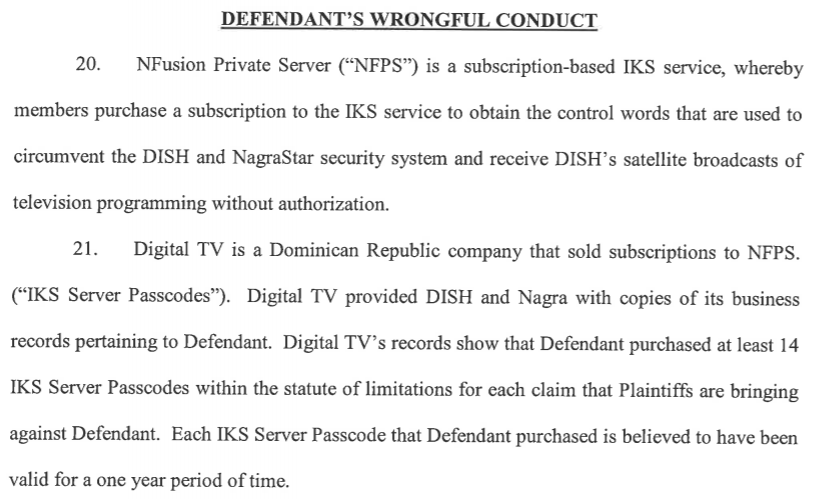
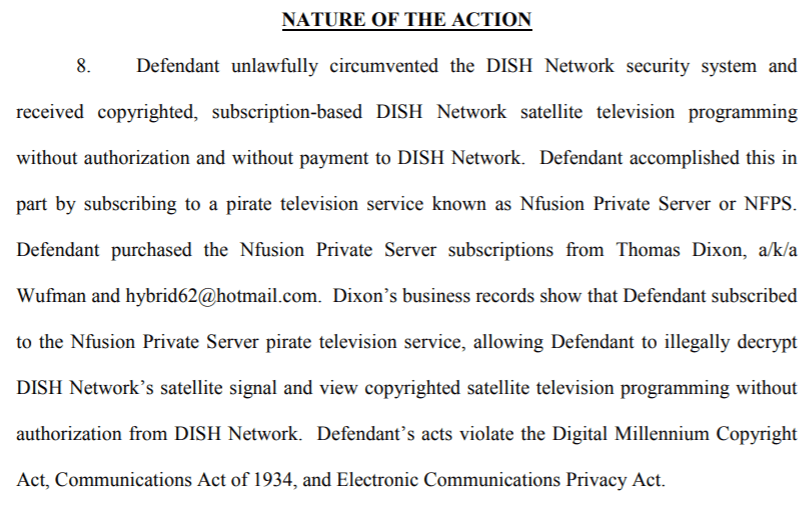

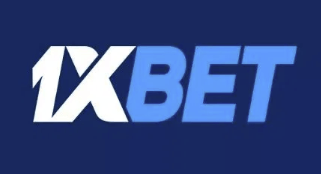


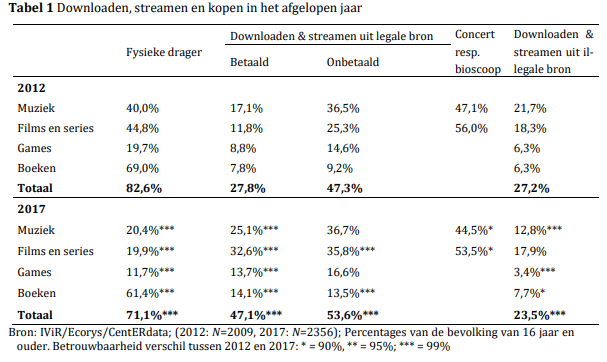
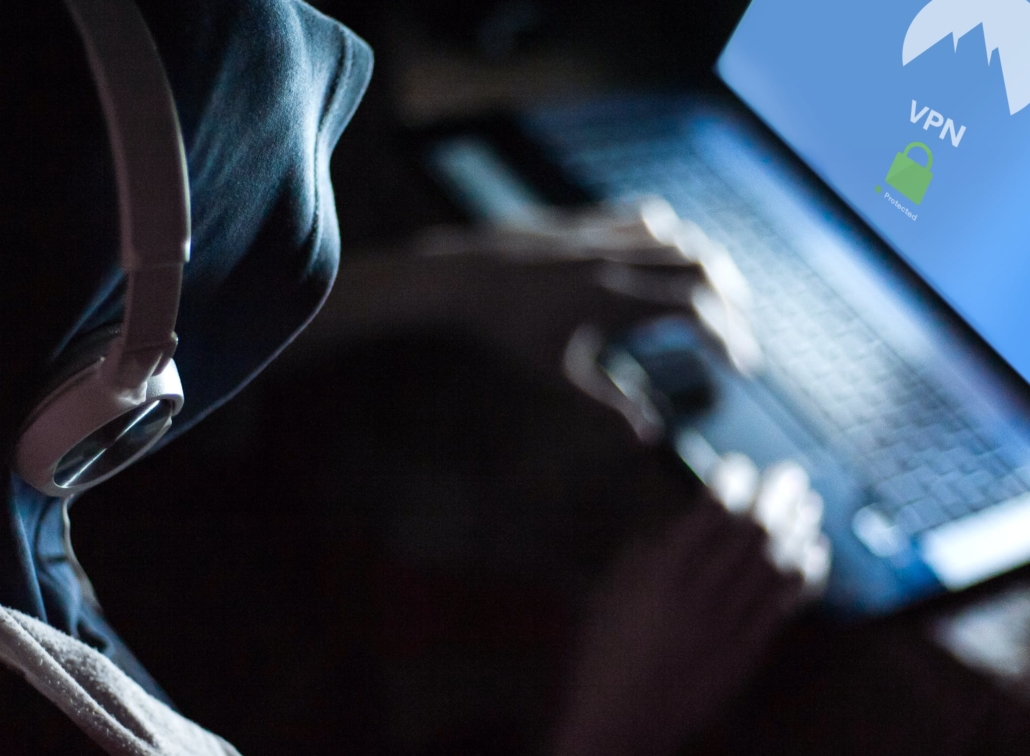
 This week we have two newcomers in our chart.
This week we have two newcomers in our chart.